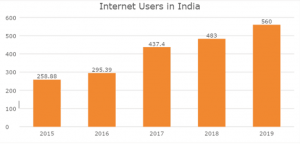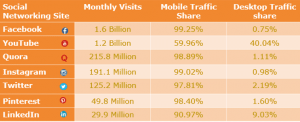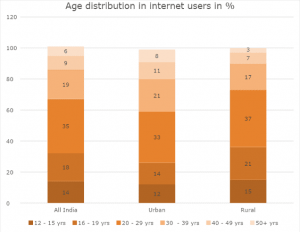This article is written by Meghana Rao pursuing Certificate Course in Competition Law, Practice And Enforcement from LawSikho.
Table of Contents
Introduction
In the nineties, India witnessed sufficient growth in terms of liberalization and privatization taking bigger space. The aspect of globalization started in this era. As much as we wanted to appreciate the economic growth which was the outcome of globalization, it was also very critical to foresee the possible competition that the market could get involved with.
The realisation came soon that The Monopolistic Restrictive Trade Practises Act was not sufficiently equipped to handle the complexities of competition. The outbreak of competition within the domestic players and the global giants paved the way for a level playing field and inventor friendly markets or environments. Hence, the philosophy had to be scoped out to having healthy competition, at the same time, prevent any abuse of market power.
What is the competition?
Competition is a situation in the market, in which sellers independently strive for buyer’s patronage to achieve business objectives.
Is having competition wrong or illegal?
Since our childhood, we have heard this term competition. In common parlance, it means trying to achieve something by establishing superiority over others. However, can I put the same logic in the market? Yes, we can. In a way, it is a requirement for the market to be aware of its competitors and work towards developing their products and services to win the market share. This is a win-win situation. However, if we look at anti-competitive practises viz. Price fixing, dividing the markets, anti-competitive contracts etc, are not healthy and it is always the consumer who faces the brunt of such practises. These types of practices are illegal. Here is where the competition law plays its role.
Social media
Social platforms especially, Facebook, Twitter and Google are now the most prominent for those that people would like to be associated with. Especially in these trying times of pandemic, social media has provided on one hand the possibility to stay in contact with the people, precautions to be taken etc and on the other hand, it is an overload of information – true and false.
Needless to say that social media has been:
- One of the biggest platforms for the freedom of speech,
- The largest coverage of the content,
- Increased brand recognition,
- Marketing platform,
- Better customer experience and many more.
With this as a powerful tool, let’s understand if social media needs regulation and if yes, what is the role of competition law.
We know that many of the companies in the IT sector and other manufacturing sectors were under the radar of CCI. However, the shift now is also moving towards social media.
After much controversy over President Trump’s use of social media for sharing misleading content, it took social giants FB and Twitter to ban Mr Trump from their platforms. Could this indicate a turning point in how social media companies handle potentially harmful content shared on their platforms? And could it herald a new era of social media reforms, through both government policies and self-regulation?
Regulation
Regulation in simple terms means, external authority drawing the rules of the game and controls the same.
Let us understand the current situation of how social media usage has increased and the effects of the same.
1. If we take India as an example, the penetration of the internet has amplified and has been growing constantly. The below graph indicates the same:
2. Top social media sites accessed in India:
Indians now download more apps than residents of any other country – over 19 billion apps were downloaded by Indian users in 2019, resulting in a 195 % growth over 2016 data. The average Indian social media user spends 17 hours on the platforms each week, more than social media users in China and the United States.
3. Age-wise distribution of usage:
With this amplified increase in access to social media within the population, the situation is prone to getting into anti-competitive practices.
Negative effects of social media usage
From an individual aspect, some of the impacts of the usage of social media:
- Defamation and hate speech,
- Breach of privacy,
- Data manipulation,
- Stalking and online harassment.
From a market perspective, impacts of usage of social media
From the above charts on the usage of social media, the giants in this industry are exploring to bring in monopoly and antitrust activities within the markets. To state a few:
- Build monopoly,
- Security and privacy,
- Ostensible empowerment,
- Freedom of expression,
- Data colonialism.
1. Build monopoly
Facebook Antitrust Lawsuit
Issues: The U.S. government has the power and the responsibility to prevent corporations from becoming monopolies. According to the government, Facebook Inc. (FB) is becoming a social media monopoly.
In December 2020, the Federal Trade Commission (FTC) and 46 states sued Facebook, accusing the firm of buying up competitors—chiefly WhatsApp and Instagram—to liquidate competition in the social media industry. The FTC antitrust lawsuit aims to force Facebook to unwind these two major acquisitions.
Allegations: that Facebook’s privacy policies worsened as competition decreased, making life worse for the average consumer. This is important because recent antitrust law has focused on cases that have caused prices to rise for consumers; companies like Facebook (and Google and Amazon) have escaped scrutiny until now in large part because they offer their services for free.
Challenges that crop up due to monopolization
- Monopolies can become inefficient and less innovative over time because they do not have to compete with other producers in a marketplace.
- In the case of monopolies, abuse of power can lead to market failure. Market failure occurs when the price mechanism fails to take into account all of the costs and/or benefits of providing and consuming a good.
- A monopoly is an imperfect market that restricts output in an attempt to maximize profit. Without the presence of market competitors, it can be challenging for a monopoly to self-regulate and remain competitive over time.
2. Security and privacy
The issue is security and privacy of data has been the biggest concern in the recent past. The latest Whatsapp security policies were in question this year. One of the examples of how the information of people on these social media was exploited is Cambridge Analytica. Here the firm exploited the private information of over 50 million people of FB users to influence the 2016 Presidential elections in the US.
While on one hand, this is a direct impact on the users is the loss of trust on the platform, on the other hand, there continue to be threats over the privacy like – data mining, phishing, malware sharing etc.
3. Ostensible empowerment
These platforms (social media) provide ostensible empowerment to users to voice their opinion and widen the circle of participation in public discourse. Users here feel empowered to put up any type of posts without filters, without analysing the information or even without validating the information.
4. Freedom of expression
The above point directly drives us down to freedom of speech and expression, which is a fundamental right of the citizens of the country. Twitter, FB and Google have been not just platforms for freedom of speech but also, but also acts as major sources of information on current affairs. In India, it’s truly a paradise for someone to express their opinions and share their perspectives.
The manner in which we see the incidents occur and the opinions shared on these platforms not just show what the author opines but also induces other readers in that matter.
5. Data colonialism
Data colonialism is the startling new social order based on continuous tracking of our devices and online lives that has created unprecedented opportunities for social discrimination and behavioural influence by corporations. It has the power to control the behaviour of humans. This information is used to manipulate and prepare such reports to corporate and eCommerce platforms that citizens themselves would be surprised to know how their information is being tracked.
A documentary called Social Dilemma clearly calls out how a few hundred seated in a well-designed office, control the behaviours with the data of millions of humans.
Should there be regulation in social media?
Regulation of social media is the biggest debate in the current days. There is always a conflict with freedom of speech and especially in a country like India which is a fundamental right. This right is supported by the UN in the Art 19 of UDHR. Does this mean, we can accept any content on the platform that could be either fake or misinformed or hate speech?
We need these regulations, however, it is to understand what to regulate. There needs to be a balance in this regulation to ensure freedom is not infringed at the same time, we are able to regulate the content. Few challenges that could be addressed immediately basis the situation are mentioned below.
-
Tracking of fake messages/information
As much as we have the freedom to express ourselves, it also comes with reasonable restrictions. Freedom in India is not absolute as per our constitution. Hence, if there is any such message that is fake or such information that incites offences, it is important to trace and take the appropriate action. We may feel it is difficult today, however, later in the article, I will provide below on how CCI can help address this.
-
Compliance team within the social media company
The social media companies were all relaxed and reaping the benefits of setting up the structure till such time the competition laws knocked at their door. The ways of working in these platforms were questioned and methods used by them to attract t people to their platforms. Additionally, these companies drew their own compliances to support the needs of the businesses.
-
Data protection
Today, the biggest challenge that consumers are facing is data protection – data mining is one of the biggest threats in the current days. Netizens today are more worried about how their personal information is being breached than posting more pictures or videos. This maturity is being built within them, as much as it could be late.
How can competition law help with the above needs?
Abuse of dominance
Abuse of a dominant position is a threat to the functioning of the free market. Competition is considered the quintessential element of a market economy. It offers a choice of several alternative services and products. Fair competition entails a better allocation of resources by the fact that the producer permanently supervises the ratio between them and expenses.
The competition law should address the operations of such competitive forces in the relevant market.
The word dominance interpreted by the CCI is such that there needs to exist one strong player in the market for the abuse to occur. In my opinion, even if there are 2 players in the market, and both are controlling pretty much the whole or majority share in the market, that could still be interpreted as dominance, as they together stop the entry of any new player or act as a barrier. By having this interpretation, the CCI can control the actions of such social media platforms. Additionally, it could also stop the collusion between the two which is a possible act to control the market.
Appropriate tools for analysing anti-competitive practises
Several competition authorities across the world emphasized the difficulties of using conventional competition tools to handle emerging competition issues in the digital world. With the new and developed digital sphere and the constant expansion, there always lies a challenge or a grey area on what is anti-competitive practice. There can never be a decision taken by the CCI on the basis of precedence. The markets are dynamic and the growth is much faster than we think is possible. In such cases, CCI is required to constantly update the right tools, definitions and the scope in which the anti-competitive practices fall, if we continue to practise the old theories, it is quite possible to be left behind to where the dominance would have taken over and created the damage, beyond correction.
Efficiencies, pro-competitive effects and innovations
In the area of mergers and acquisitions, the Competition Authority often finds it challenging in analysing efficiencies in proposed mergers and acquisitions in digital markets. Assessing dynamic efficiencies, such as increased innovation, requires extensive knowledge and understanding of the sector and the technologies involved, as well as making predictions despite the unpredictable nature of innovation. The Competition Authority attempts to address these challenges by increasing understanding of the underlying technology in the relevant sector and closely following developments in these markets. There is a need for balanced competition in law enforcement to ensure that overenforcement or underenforcement did not slow down innovation and investment in such digital platforms.
Considering the competition concept and its regulation is fairly new to India and the digital platform not being exploited to the levels of the non-digital market, it needs more investment from CCI to set the right and acceptable standards of performance.
Legislative and regulatory initiatives by competition authorities involving social platforms
There is a need from the Competition Authority to support the system by placing new regulatory initiatives for this industry rather than handling the complaints on a case to case basis.
- Amendments to competition laws to adjust to social media market features: Amend the competition laws to better capture anticompetitive practices in these digital markets, especially the social platforms, for example, by introducing and defining new relevant concepts.
- New regulations for social platforms: If the Competition Authority feels the current laws do not address or is not sufficient to address the challenges, there could be the introduction of exclusive laws for these social platforms and a separate wing, to handle the cases under this category with the right expertise who understands the technology and the ways of working of these platforms.
- Guidelines: There could also be a softer approach by the Competition Authority to place guidelines to be followed, instead of lengthier legislation. Or it could also consider guidelines till such time the legislations are introduced to follow. The guidelines could illustrate anticompetitive practices related to digital platforms, such as anti-competitive agreements using data and algorithms on platforms to collect or exchange sensitive information. In addition, the guidelines could include factors to be taken into account in establishing the dominant market position of a digital platform and conduct that may be considered abuse of dominance, such as refusal to deal without justification.
- Market studies: Another softer approach is market study – markets can be studied and publish reports on competition in this market. Such studies and reports examine business practices and competition concerns involving dominant digital platforms and propose solutions for how to deal with such issues. Some countries have used these market studies as their base to form new legislation. In fact, in my opinion, these market studies, when conducted by the experts, would probably provide a wider sense of the competitive practises that could exist and possible practises that could occur, which would act as the starting point for the strict approach to be taken by the authorities.
Conclusion
There is an increasing understanding of the shortcomings of relying solely on competition law enforcement to deal with competition concerns raised by social/digital platforms. In addition, there is a recognized need to regulate such platforms ex-ante, to address issues before they arise, that is, to pre-empt certain anticompetitive practices rather than wait until they cause competition-related harm in the market and attempt to fix them.
The need to regulate these platforms, taking into account various policy perspectives, including competition, consumer protection and privacy, is increasingly recognized. It is equally important not to deter freedom of speech and expression and to keep them open to competition and innovation from new entrants. The practices of these platforms have implications not only for competition but also for consumers and their privacy. This requires a holistic approach whereby competition, consumer protection and data protection authorities work in close cooperation.
Students of Lawsikho courses regularly produce writing assignments and work on practical exercises as a part of their coursework and develop themselves in real-life practical skills.
LawSikho has created a telegram group for exchanging legal knowledge, referrals, and various opportunities. You can click on this link and join:
 Serato DJ Crack 2025Serato DJ PRO Crack
Serato DJ Crack 2025Serato DJ PRO Crack














 Allow notifications
Allow notifications


